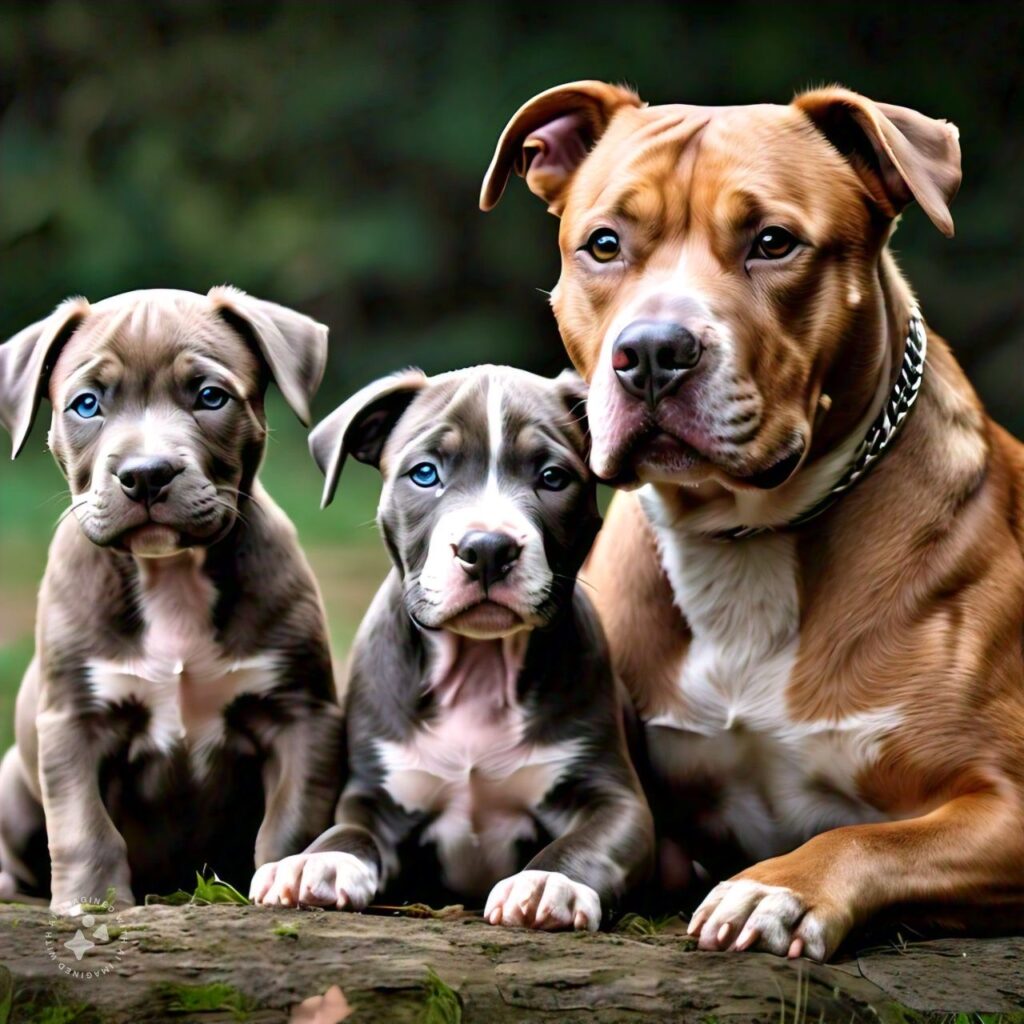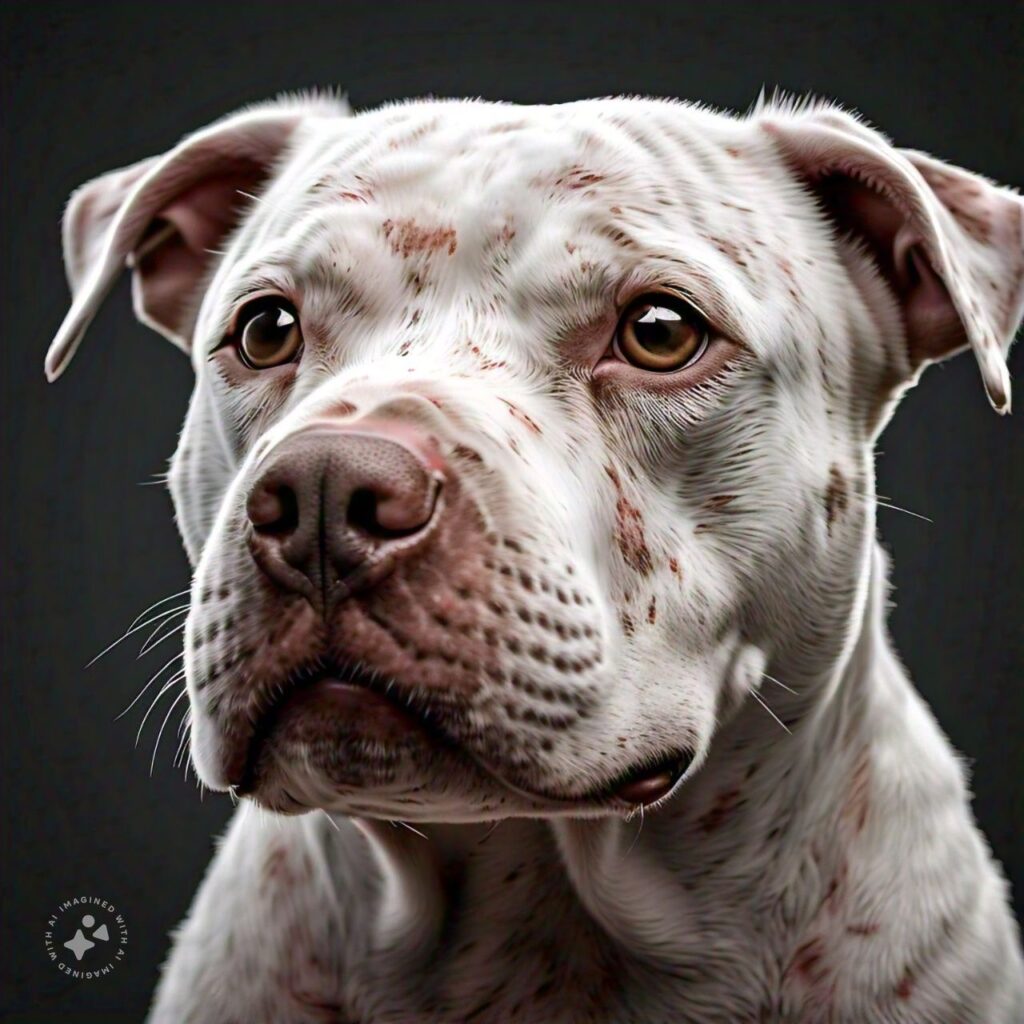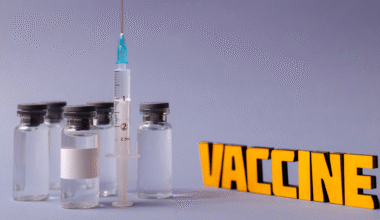Pitbulls are known for their boundless energy, loyalty, and affectionate nature, but understanding the average life for a pitbull is key to providing the best care throughout their lives. Knowing what to expect can help you ensure your Pitbull lives a long, healthy, and happy life.
Many people think Pit Bulls don’t live long, but they actually live as long as other medium and large dogs. The average life for pitbull is between 8 and 16 years. Yet, they age faster than smaller dogs, which means they may face health issues sooner.
Things like their genes, how they were bred, their size, what they eat, where they live, and their health care can affect how long they live.
Taking them to the vet regularly, feeding them well, making sure they get enough exercise, and treating health problems early can help them live longer.
What Is the Average Pitbull Lifespan?
Pitbulls are medium-sized dogs with an average lifespan of 10-14 years. The average lifespan of a Pitbull typically ranges from 8 to 15 years, with the average falling around 12 to 14 years.
Factors such as genetics, diet, exercise, and overall care play crucial roles in determining the longevity of these loyal and energetic dogs. While some may live on the lower end of the spectrum due to genetic predispositions, others might exceed the average lifespan with proper love, care, and attention.
Understanding these factors can help Pitbull owners ensure their furry companions live their fullest and healthiest lives possible.

Factors Influencing Pitbull Lifespan
Pitbulls from well-bred lines with diverse genetics tend to live longer. Breeders who focus on maintaining breed standards might reduce genetic diversity. This can lead to more health issues, especially in merle-patterned Pitbulls. These patterns often come from irresponsible breeding.
A Pitbull’s size can also affect their lifespan. Larger pitbulls usually don’t live as long as the smaller ones.
Being overweight is a big health risk for Pit bulls. It can cause joint problems, metabolic disorders, and heart disease, shortening their lives.
It’s important to feed them right and control their portions to keep them healthy and live longer.
Genetics and Breeding History
Pitbulls from lines with diverse genetics tend to live longer. Responsible breeders focus on health and genetic diversity. This can help your dog live its full life.
Size and Nutrition
Larger Pitbulls tend to have slightly shorter lifespans than their smaller counterparts since larger dogs age faster. Therefore, if you have a compact-sized Pitbull, you might enjoy their companionship for a longer period of time compared to a larger pit bull with a relatively shorter lifespan.
Additionally, proper nutrition is vital for Pit bulls, as they are prone to weight gain. Feeding them a diet low in fat and calories while providing adequate protein to support their muscular build can influence their lifespan significantly.
By understanding the impact of size and nutrition on Pit bulls, owners can make informed decisions to help their furry companions live healthier and longer lives.
Life Stages of Pitbulls
Pitbull puppies go through many stages as they grow and mature. Knowing these stages helps owners care for their Pitbulls’ health and happiness. It ensures they get the right care, training, and socialization at each stage.
Puppy Stage
Newborn Pitbull puppies are blind, deaf, and need their mother for everything. They start to open their eyes and move around soon. This is a key time for socialization as they are curious and like to explore.
Training and watching them closely during this phase is crucial. It sets them up for success as they grow.

Young Adult Stage
Pitbulls are seen as adults at 12-18 months old, but they may mature mentally and emotionally earlier or later. This stage is important for ongoing training and socialization. They will test limits and see how far they can go, like human teens.
Consistent training and not letting them get away with bad behavior is key. This helps them smoothly move into adulthood.

Mature Adult Stage
Most Pitbulls become emotionally mature around 3 to 4 years of age. At this point, they have transitioned from young adulthood and are considered fully mature.
During the mature adult stage, Pit bulls are generally more settled in their behavior and have reached their full physical and behavioral development. They start to calm down from their youthful energy. but it is important to remember that still need regular exercise and play, even though they might want more rest.
This period can be a rewarding time for dog owners as their Pitbulls exhibit a good balance of energy and maturity.
Understanding and recognizing the characteristics of the mature adult stage in Pitbulls can help owners provide appropriate care, training, and enrichment to ensure a happy and healthy life for their beloved pets.
They need mental stimulation, like advanced training or dog sports, to stay engaged and avoid boredom.
Senior Stage
Senior Pitbulls, around 8-9 years old, start to slow down and sleep more. They still need some activity, but it should be less intense. Shorter walks and gentler playtime help keep them happy and comfortable.
Common Health Issues Affecting Average Life for A Pitbull
Pitbulls are usually healthy and love to stay active. But, they can face some common health issues that might affect their lifespan if not taken care of. Let’s look at the main health problems that can shorten a Pitbull’s life.
Dental Disease
Dental disease is a big worry for Pitbulls, with about 80% of dogs getting it by the time they are two years old. Their teeth often fit tightly together, making dental problems more likely. If dental infections aren’t treated, they can spread to other important organs, cutting a Pitbull’s life short by 1-3 years.
Regular dental cleanings and taking care of your Pitbull’s teeth at home are key to stopping this problem. This helps keep your Pitbull healthy and happy.
Hip and Knee Problems
Pitbulls often get hip and knee issues, like hip dysplasia and patellar luxation. These issues can be very painful and can lead to osteoarthritis if not managed well. This can really affect a Pitbull’s life and how long they live.
Seeing the vet regularly, giving joint supplements, and keeping your Pitbull at a healthy weight can help. This can make sure your Pitbull stays comfortable and active for a long time.
Skin Conditions
Skin issues can impact the overall health and longevity of pitbulls. Pit bulls are prone to various skin problems, ranging from allergies and infections to dermatitis and itching. Examples being allergic dermatitis, ichthyosis, and skin cancers. Pit bulls with short coats are more likely to get skin problems.
These skin conditions can not only cause discomfort for the Pitbull but also lead to secondary health issues if left untreated. Regular grooming, cleaning ears, providing shade to prevent sunburns, and being vigilant about allergies are crucial in managing and preventing skin conditions in Pitbulls.
By addressing skin problems promptly and implementing proper care routines, owners can help ensure their Pitbulls lead happy, healthy lives with minimized skin-related health concerns.
This helps keep your Pitbull’s skin healthy and stops these problems from getting worse.

Tips to Maximize Your Pitbull’s Lifespan
As a Pitbull owner, you have a big role in how long your pet will be with you. To make sure your Pitbull lives a long, healthy life, follow these key tips:
- Schedule regular veterinary check-ups. These visits can spot health issues early, making treatment easier.
- Provide a high-quality, balanced diet. A good diet and keeping your Pitbull at a healthy weight can prevent obesity problems.
- Prioritize dental hygiene. Dental disease is common in Pitbulls, so regular cleanings and dental care at home are key.
- Ensure daily exercise and mental stimulation. Activities like playtime, training, and enrichment keep your Pitbull happy and healthy.
- Discuss joint health supplements. Your vet can suggest supplements to prevent or manage joint issues, which are common in Pitbulls.
By following these tips and working with your vet, you can help your Pitbull live a long, happy life. Remember, taking steps to support your Pitbull’s health and longevity is a key part of best practices for pitbull care. This can really extend their lifespan.
Conclusion
Pitbulls are loved pets with a life span of 10-14 years. This is quite good for a breed of their size. Factors like genetics, breeding history, size, nutrition, and health affect their lifespan. Knowing these key factors influencing pitbull longevity helps owners keep their pets healthy and happy.
Being a responsible pitbull owner is key. Regular vet visits and caring for your Pitbull’s needs are essential. This way, you can make sure they live a long, healthy life and enjoy time with you.
The pitbull lifespan summary shows how important it is to understand this breed’s needs and challenges. With the right care and love, your Pitbull can live a happy, long life. This makes them a valued part of your family.





147 comments
I don’t think the title of your article matches the content lol. Just kidding, mainly because I had some doubts after reading the article.
Thanks for sharing. I read many of your blog posts, cool, your blog is very good.
Thank you for your sharing. I am worried that I lack creative ideas. It is your article that makes me full of hope. Thank you. But, I have a question, can you help me?
Your article helped me a lot, is there any more related content? Thanks! https://accounts.binance.com/zh-TC/register?ref=VDVEQ78S
Thank you for your sharing. I am worried that I lack creative ideas. It is your article that makes me full of hope. Thank you. But, I have a question, can you help me?
Your article helped me a lot, is there any more related content? Thanks!
Thanks for sharing. I read many of your blog posts, cool, your blog is very good.
Thanx for the effort, keep up the good work Great work, I am going to start a small Blog Engine course work using your site I hope you enjoy blogging with the popular BlogEngine.net.Thethoughts you express are really awesome. Hope you will right some more posts.
Can you be more specific about the content of your article? After reading it, I still have some doubts. Hope you can help me.
Thanks for sharing. I read many of your blog posts, cool, your blog is very good.
Your article helped me a lot, is there any more related content? Thanks!
аккаунт для рекламы купить аккаунт с прокачкой
аккаунт для рекламы продажа аккаунтов
магазин аккаунтов https://magazin-akkauntov-online.ru/
магазин аккаунтов аккаунт для рекламы
услуги по продаже аккаунтов услуги по продаже аккаунтов
гарантия при продаже аккаунтов безопасная сделка аккаунтов
услуги по продаже аккаунтов https://pokupka-akkauntov-online.ru/
Account Store Account exchange
Buy and Sell Accounts Accounts market
Account Buying Service Find Accounts for Sale
Buy and Sell Accounts Website for Buying Accounts
Buy Account Find Accounts for Sale
Gaming account marketplace Secure Account Sales
Account Purchase Account Trading Service
Guaranteed Accounts Profitable Account Sales
Account Store Accounts market
Account Trading Profitable Account Sales
Purchase Ready-Made Accounts Guaranteed Accounts
account buying platform account buying service
ready-made accounts for sale purchase ready-made accounts
account market guaranteed accounts
account purchase account buying service
account trading platform find accounts for sale
account trading online account store
account trading account trading platform
sell account account catalog
buy account account sale
sell pre-made account gaming account marketplace
account trading account store
accounts marketplace gaming account marketplace
account selling service website for selling accounts
account selling service account trading platform
buy accounts accounts market
guaranteed accounts account exchange
account selling service account trading platform
accounts market buy accounts
account trading account purchase
account exchange service account exchange service
secure account sales secure account sales
account buying service find accounts for sale
database of accounts for sale account buying service
guaranteed accounts account catalog
find accounts for sale database of accounts for sale
account buying service account catalog
ready-made accounts for sale guaranteed accounts
account trading platform buy and sell accounts
accounts for sale https://accounts-offer.org/
accounts for sale https://accounts-marketplace.xyz
account trading platform https://buy-best-accounts.org
account market accounts market
account trading platform account marketplace
buy accounts social-accounts-marketplace.xyz
find accounts for sale https://buy-accounts.space
Thanks for sharing. I read many of your blog posts, cool, your blog is very good.
database of accounts for sale https://buy-accounts-shop.pro
account catalog https://social-accounts-marketplace.live
secure account purchasing platform https://buy-accounts.live/
account selling platform https://accounts-marketplace.online
sell accounts https://accounts-marketplace-best.pro/
купить аккаунт akkaunty-na-prodazhu.pro
магазин аккаунтов https://rynok-akkauntov.top/
магазин аккаунтов https://kupit-akkaunt.xyz/
маркетплейс аккаунтов https://akkaunt-magazin.online/
магазин аккаунтов akkaunty-market.live
покупка аккаунтов https://kupit-akkaunty-market.xyz/
покупка аккаунтов https://akkaunty-optom.live/
магазин аккаунтов online-akkaunty-magazin.xyz
покупка аккаунтов https://akkaunty-dlya-prodazhi.pro
биржа аккаунтов https://kupit-akkaunt.online
buy facebook accounts https://buy-adsaccounts.work
buy accounts facebook https://buy-ad-accounts.click
buy facebook accounts for ads https://buy-ad-account.top
facebook ad accounts for sale buying facebook accounts
buy a facebook account https://ad-account-buy.top
buy facebook account https://buy-ads-account.work
buying facebook ad account https://ad-account-for-sale.top
buy fb account https://buy-ad-account.click
facebook ads account for sale https://ad-accounts-for-sale.work/
buy google ads threshold accounts https://buy-ads-account.top
buy google ads invoice account buy aged google ads accounts
buy facebook accounts cheap buy facebook accounts cheap
buy google agency account https://ads-account-for-sale.top/
buy aged google ads account https://ads-account-buy.work
buy google ads accounts https://buy-ads-invoice-account.top/
buy verified google ads account https://buy-account-ads.work
buy google ads threshold accounts https://buy-ads-agency-account.top
buy google adwords accounts sell google ads account
old google ads account for sale https://ads-agency-account-buy.click
Thanks for sharing. I read many of your blog posts, cool, your blog is very good. https://accounts.binance.com/register?ref=P9L9FQKY
buy business manager account https://buy-business-manager.org/
buy google ad threshold account https://buy-verified-ads-account.work/
buy facebook bm https://buy-bm-account.org
unlimited bm facebook buy-business-manager-acc.org
buy facebook bm https://buy-verified-business-manager-account.org
facebook business account for sale buy-verified-business-manager.org
verified business manager for sale https://business-manager-for-sale.org/
buy facebook business manager https://buy-business-manager-verified.org/
facebook verified business manager for sale https://buy-bm.org
buy verified facebook verified-business-manager-for-sale.org
verified business manager for sale buy-business-manager-accounts.org
tiktok ad accounts https://buy-tiktok-ads-account.org
buy tiktok ads accounts https://tiktok-ads-account-buy.org
buy tiktok ads accounts https://tiktok-ads-account-for-sale.org
tiktok ads account buy https://tiktok-agency-account-for-sale.org
buy tiktok ads https://buy-tiktok-ad-account.org
tiktok ads account buy https://buy-tiktok-ads-accounts.org
buy tiktok ads https://buy-tiktok-business-account.org
buy tiktok ads account https://buy-tiktok-ads.org
buy tiktok business account https://tiktok-ads-agency-account.org
Your point of view caught my eye and was very interesting. Thanks. I have a question for you.
Thanks for sharing. I read many of your blog posts, cool, your blog is very good.
В этом информативном тексте представлены захватывающие события и факты, которые заставят вас задуматься. Мы обращаем внимание на важные моменты, которые часто остаются незамеченными, и предлагаем новые перспективы на привычные вещи. Подготовьтесь к тому, чтобы быть поглощенным увлекательными рассказами!
Разобраться лучше – https://nakroklinikatest.ru/
Your article helped me a lot, is there any more related content? Thanks!
Your article helped me a lot, is there any more related content? Thanks! https://www.binance.com/register?ref=P9L9FQKY
Thank you for your sharing. I am worried that I lack creative ideas. It is your article that makes me full of hope. Thank you. But, I have a question, can you help me?
It’s actually a nice and useful piece of info. I am glad that you just shared this useful information with us. Please keep us informed like this. Thanks for sharing.
Thank you for your sharing. I am worried that I lack creative ideas. It is your article that makes me full of hope. Thank you. But, I have a question, can you help me?
Завжди вважала, що чудово знаю як готувати, але в останні місяці мої страви стали одноманітними і почали повторюватись. Дівчина порадила мені подивитися нові рецепти, але я не знала, де шукати. Випадково знайшла цей каталог і… це було як відкриття нового світу! Оказалося, що є величезна кількість сайтів з дивовижними рецептами, про які я навіть не підозрювала. Я була в захваті від розділи з фірмовими стравами та рецептами етнічних страв. Протягом місяця я спробувала страву французької кухні, тайської та навіть марокканської кухні! Моя сім’я в захваті, а я почуваюсь впевненим кулінаром. Також почала вести кулінарний блокнот, де записую кожен спробований рецепт, які спробувала
Каталог рецептів
Thank you for your sharing. I am worried that I lack creative ideas. It is your article that makes me full of hope. Thank you. But, I have a question, can you help me?
you’re really a good webmaster. The web site loading speed is incredible. It seems that you’re doing any unique trick. In addition, The contents are masterwork. you have done a wonderful job on this topic!
I have been surfing online more than 3 hours these days, yet I never found any interesting article like yours. It is lovely value enough for me. In my opinion, if all web owners and bloggers made just right content as you probably did, the web shall be much more helpful than ever before.
https://t.me/s/TgGo1WIN/13
Your point of view caught my eye and was very interesting. Thanks. I have a question for you.
Официальный Telegram канал 1win Casinо. Казинo и ставки от 1вин. Фриспины, актуальное зеркало официального сайта 1 win. Регистрируйся в ван вин, соверши вход в один вин, получай бонус используя промокод и начните играть на реальные деньги.
https://t.me/s/Official_1win_kanal/671
Официальный Telegram канал 1win Casinо. Казинo и ставки от 1вин. Фриспины, актуальное зеркало официального сайта 1 win. Регистрируйся в ван вин, соверши вход в один вин, получай бонус используя промокод и начните играть на реальные деньги.
https://t.me/s/Official_1win_kanal/991
Wow! This blog looks just like my old one! It’s on a totally different subject but it has pretty much the same layout and design. Great choice of colors!
Your point of view caught my eye and was very interesting. Thanks. I have a question for you. https://www.binance.info/ur/register?ref=WTOZ531Y
Hello, you used to write fantastic, but the last few posts have been kinda boringK I miss your super writings. Past several posts are just a little bit out of track! come on!
Great write-up, I’m regular visitor of one’s web site, maintain up the excellent operate, and It’s going to be a regular visitor for a long time.
Can you be more specific about the content of your article? After reading it, I still have some doubts. Hope you can help me.
Your point of view caught my eye and was very interesting. Thanks. I have a question for you.
Your point of view caught my eye and was very interesting. Thanks. I have a question for you.
Your article helped me a lot, is there any more related content? Thanks! https://accounts.binance.com/es/register-person?ref=RQUR4BEO
鸳鸯浴、艳舞、按摩、波推、指滑、臀推、毒龙、舌吻、环游、吹箫、六九、口爆、深喉、颜射、制服丝袜 A detailed explanation is available at Tool Collection.
Thank you for your sharing. I am worried that I lack creative ideas. It is your article that makes me full of hope. Thank you. But, I have a question, can you help me?
Your point of view caught my eye and was very interesting. Thanks. I have a question for you. https://accounts.binance.info/ph/register?ref=IU36GZC4